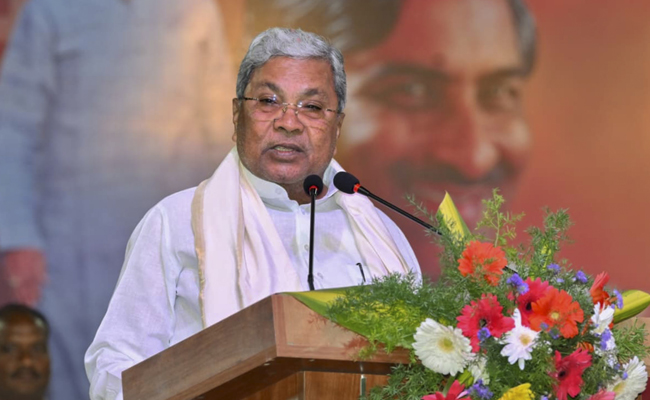Kabul, Mar 19: Afghanistan is the unhappiest country in the world even before the Taliban swept to power last August. That's according to a so-called World Happiness report released ahead of the UN-designated International Day of Happiness on Sunday.
The annual report ranked Afghanistan as last among 149 countries surveyed, with a happiness rate of just 2.5. Lebanon was the world's second saddest country, with Botswana, Rwanda and Zimbabwe rounding out the bottom five. Finland ranked first for the fourth year running with a 7.8 score, followed by Denmark and Switzerland, with Iceland and the Netherlands also in the top five.
India is ranked at a lowly 136, even below Pakistan, which is at 121, on the list.
Researchers ranked the countries after analyzing data over three years. They looked at several categories including gross domestic product per capita, social safety nets, life expectancy, freedom to make life choices, generosity of the population, and perceptions of internal and external corruption levels.
Afghanistan stacked up poorly in all six categories, a confounding result coming as it does before the Taliban's arrival and despite 20 years of US and international investment. The US alone spent 145 billion on development in Afghanistan since 2002, according to reports by the US special inspector general for Afghanistan.
Still, there were signs of increasing hopelessness.
Gallup did a polling in 2018 and found few Afghans they surveyed had much hope for the future. In fact the majority said they had no hope for the future.
Years of runaway corruption, increased poverty, lack of jobs, a steady increase in people forced below the poverty line, and erratic development all combined into a crushing malaise, said analyst Nasratullah Haqpal. Most Afghans had high hopes after 2001, when the Taliban were ousted and the US-led coalition declared victory, Unfortunately the only focus was on the war, the warlords and the corrupt politicians, said Haqpal.
People just became poorer and poorer and more disappointed and more unhappy... that is why these 20 years of investment in Afghanistan collapsed in just 11 days," he said referring to the Taliban's lightning blitz through the country before sweeping into Kabul in mid August.
When Masoud Ahmadi, a carpenter returned to Afghanistan from neighboring Pakistan after the 2001 collapse of the Taliban, his hopes for the future were bright. He dreamed of opening a small furniture-making shop, maybe employing as many as 10 people. Instead, sitting in his dusty 6-foot by 10-foot workshop on Saturday, he said he opens just twice a week for lack of work.
When the money came to this country the leadership of the government took the money and counted it as their personal money, and the people were not helped to change their life for the better, said Ahmadi.
The report warns that Afghanistan's numbers might drop even further next year when it measures Afghans' happiness level after the arrival of the Taliban. The economy is currently in free fall as the group struggles to transition from fighting to governing.
Let the Truth be known. If you read VB and like VB, please be a VB Supporter and Help us deliver the Truth to one and all.
Kolkata (PTI): Prime Minister Narendra Modi arrived here on Saturday for a visit to West Bengal's Nadia district, where he is scheduled to inaugurate national highway projects and address a public rally, amid heightened political tensions over the ongoing SIR exercise in the state.
This is Modi’s first visit to the state since the draft SIR rolls were published, and the third in the past five months.
"The PM arrived at the N S C Bose International Airport at 10:33 am and boarded a helicopter for Nadia," an official said.
ALSO RAED: Retired teacher found dead in pool of blood at home in Kerala's Kochi
The Prime Minister, political observers said, is scheduled to address the growing unease amongst the Matua community members post the publication of the draft rolls from his strategically located BJP rally venue in Taherpur area of Ranaghat, not far from the heartland of the Namasudra Hindu community in adjacent Bongaon.
In the process, Modi is likely to sound the BJP’s bugle for the assembly polls, which are due in the state early next year and finalise the roadmap for the party’s big push for the crucial elections.
“The people of West Bengal are benefiting from numerous pro-people initiatives of the central government. At the same time, they are suffering due to the TMC’s misgovernance in every sector,” the PM posted on X on Friday evening while announcing his visit.
“The loot and intimidation of the TMC have crossed all limits. That is why, the BJP is the people’s hope,” he added.
The PM’s visit comes at a time when the Mamata Banerjee-led Trinamool Congress has mounted sustained opposition to the Special Intensive Revision (SIR) of electoral rolls, alleging that the exercise is being carried out in “haste” and that a large number of genuine voters, particularly refugee Hindus, risk disenfranchisement on its account.
In the draft electoral rolls published after the enumeration phase, 58,20,899 names have been excluded, reducing the electorate to 7.08 crore.
Around 1.36 crore entries have also been flagged for "logical discrepancies", while 30 lakh voters have been categorised as unmapped – a significant percentage of whom are likely to be called for verification hearings over the next 45 days.
For Matuas, a Dalit Hindu community that migrated from Bangladesh over decades due to religious persecution, this exercise has revived anxieties over identity and documentation.
Political observers widely believe that the community members hold sway in as many as 80 of the 294 assembly seats in the state.
Speculations are rife that significant numbers of Matuas have already been excluded from draft rolls. Many more are likely to follow suit in the final rolls on account of the unavailability of the EC-specified indicative documents they need to produce in the eventuality of receiving hearing notices during the verification phase.
Over the past years, poll results have indicated that the BJP gained significant inroads within the community, promising them formal Indian citizenship.
BJP MP Jagannath Sarkar, who represents the Ranaghat Lok Sabha seat, where Taherpur is located, claimed that fear was being spread deliberately among the Matuas about SIR.
"We are hopeful that the PM's message would dispel those fears and canards," he said.
Chief Minister Mamata Banerjee has already led anti-SIR rallies in Nadia and North 24 Parganas, the two adjoining districts that share a border with Bangladesh and have a significant Matua presence.
During his visit, the PM will inaugurate and lay the foundation stone for two national highway projects worth around Rs 3,200 crore.
He will inaugurate the 66.7-km-long four-laning of the Barajaguli-Krishnanagar section of NH-34 in Nadia district and lay the foundation stone for the four-laning of the 17.6-km-long Barasat–Barajaguli section in North 24 Parganas district.
The projects are expected to serve as a vital connecting link between Kolkata and Siliguri, boosting trade, tourism and economic activity across southern and northern parts of the state, officials said.





